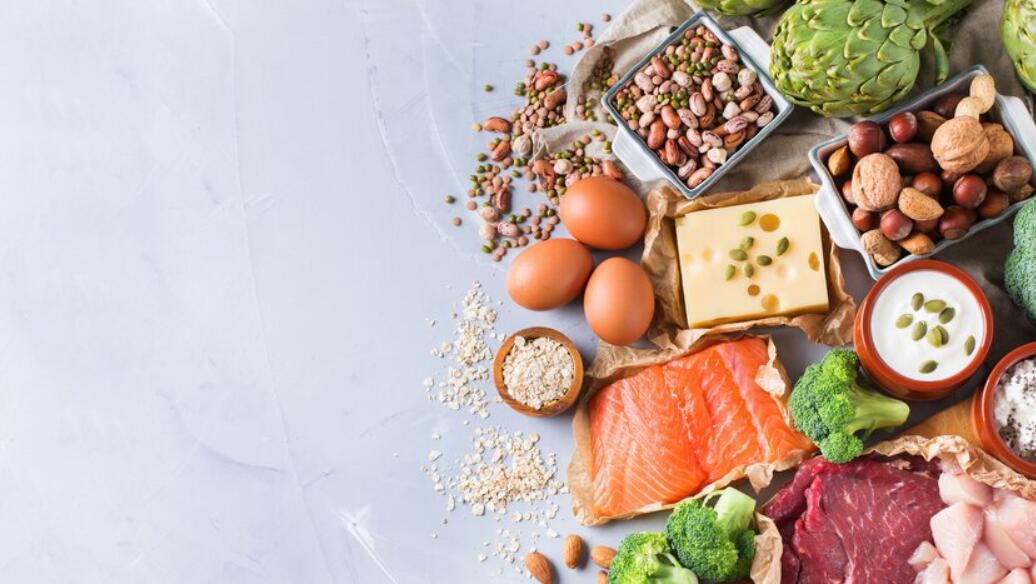Diet and nutrition play a significant role in maintaining healthy hair. Hair growth and overall hair health are influenced by a variety of factors, including genetics, hormonal balance, and environmental factors. However, a balanced diet rich in essential nutrients can help support hair health and minimize hair loss. Here’s how key nutrients contribute to hair health:

Protein
Hair is primarily made of a protein called keratin, so consuming enough high-quality protein is essential for hair growth. Insufficient protein intake can lead to hair shedding and thinning.
Sources: Lean meats, fish, eggs, legumes, nuts, seeds, tofu, and quinoa.
Iron
It is necessary for proper circulation and oxygen delivery to the hair follicles. Iron deficiency can lead to hair loss, especially in women, as it can result in anemia.
Sources: Red meat, poultry, fish, lentils, beans, tofu, spinach, and fortified cereals.
Omega-3 Fatty Acids
Omega-3 fatty acids help nourish the scalp, reduce inflammation, and promote healthy hair follicles. They also help to keep the hair shiny and hydrated.
Sources: Fatty fish (salmon, mackerel), flaxseeds, chia seeds, walnuts, and algae-based supplements.
Vitamin D
Vitamin D helps to regulate hair growth and the health of hair follicles. A deficiency in vitamin D has been linked to hair thinning and conditions like alopecia.
Sources: Sunlight exposure, fortified dairy products, egg yolks, mushrooms, and fatty fish.
Vitamin A
Vitamin A is crucial for cell growth, including the cells responsible for hair follicles. It also helps maintain a healthy scalp by promoting the production of sebum (natural oil) that keeps the scalp moisturized.
Sources: Carrots, sweet potatoes, spinach, kale, and liver.
Biotin (Vitamin B7)
It is a water-soluble B vitamin that plays a role in the production of keratin, the protein that makes up hair. Biotin deficiency has been linked to hair thinning and brittle hair.
Sources: Eggs, nuts, seeds, sweet potatoes, and avocados.
Zinc
It helps with hair tissue growth and repair and ensures that the oil glands around hair follicles are working properly. Zinc deficiency can cause hair loss and affect the hair’s texture.
Sources: Shellfish, beef, pumpkin seeds, lentils, chickpeas, and cashews.
Vitamin E
Vitamin E is an antioxidant that helps protect hair from oxidative stress, which can damage hair follicles. It also promotes blood circulation to the scalp, supporting healthy hair growth.
Sources: Sunflower seeds, almonds, spinach, avocados, and broccoli.
Vitamin C
Vitamin C helps with the absorption of iron, which is essential for hair health. It also protects against oxidative damage, strengthens hair strands, and aids collagen production for healthy hair growth.
Sources: Citrus fruits, strawberries, bell peppers, and broccoli.
Folic Acid (Vitamin B9)
Folic acid helps with the production of red blood cells, which in turn ensures that hair follicles receive the nutrients they need to grow healthy hair.
Sources: Leafy greens, beans, peas, lentils, and fortified grains.
Silica
Silica strengthens hair, improves texture, and prevents breakage. It’s also essential for collagen production, which helps maintain hair structure.
Sources: Cucumbers, bell peppers, oats, and barley.
Hydration
Adequate water intake is crucial for keeping your hair hydrated from the inside. Dehydration can lead to dry, brittle hair that is more prone to breakage.
Recommendation: Drink plenty of water throughout the day, ideally 8 cups or more depending on your activity level and climate.
Impact of Diet on Hair Health
Balanced diet: Ensuring that you’re eating a variety of foods rich in these nutrients can promote healthy hair growth and reduce the risk of hair loss.
Avoiding nutrient deficiencies: Deficiencies in specific vitamins or minerals can lead to hair thinning, breakage, or even conditions like alopecia. Regularly consuming a balanced, nutrient-rich diet is key to maintaining healthy hair.
Stress and Lifestyle: Stress, lack of sleep, and poor lifestyle choices (such as smoking and excessive alcohol) can also contribute to hair health issues. A healthy diet can mitigate some of these factors by providing the nutrients needed to repair hair follicles and encourage growth.
If you’re experiencing hair loss, it’s important to consider your diet and look for possible deficiencies. However, external factors like genetics or medical conditions should also be evaluated in consultation with a healthcare provider.